If you’re an audiobook lover, then undoubtedly you’ve tuned into the unmistakable voice of Julia Whelan. Narrating beloved novels like The Women by Kristin Hannah, The Seven Husbands of Evelyn Hugo by Taylor Jenkins Reid and dominating our favorite EmHen audiobooks, she is the gold standard for some of our absolute favorites.
But her work as an author is taking center stage this month as the adaptation of her novel, My Oxford Year, hits Netflix August 1. We’re so thrilled to be spotlighting this powerhouse literary icon this month as she celebrates watching her beloved novel hit the streaming service. We had the chance to sit down and talk with her in this exclusive interview where we discuss some of her favorite books, her upcoming work and and the inspiration behind My Oxford Year.
Tell us about what inspired My Oxford Year and how the story evolved from that initial spark.
This book has a very unique origin story, which I write about in the author’s note: it actually, interestingly, began as an existing screenplay already in development. I was hired (along with another screenwriter friend who also went to Oxford) to essentially fix the Oxford of it all. The academic authenticity, the student life aspect, the feel of the place. After about a year, having accomplished what had been asked of us, we were released from the project. But I felt there was so much more to the story and I didn’t want to give it up. Plus, and this is crucial, I had lost my father, suddenly, the year before. So I had a lot to say about grief. But the limits of a screenplay couldn’t satisfy the depth of story and intricacies of character that I wanted to explore.

Well, the producers knew I was passionate about the story and they asked me if I thought there was enough material there for a novel. And I got one of those full body shivers, I’m sure you know what I mean, that moment when the universe spins you around and forces you to look in a completely different direction. That new perspective was so clear: I’d been trying to shoehorn a novel into the shape of a screenplay. So they hired me to write the book. And, to their credit, they let me change (almost) everything I needed to in order to tell the story I wanted to tell, to write the book I wanted to write. A story about dreams, grief, fear, love, choice, living, dying, and, of course, poetry.
Did it feel different narrating your own work as opposed to someone else’s?
Oh, yes. Absolutely. It’s very difficult for me to turn off my editorial brain when I’m recording my own work. With another author’s work, I’m committed to inhabiting their voice, their point of view, and their chosen words to express it all. With My Oxford Year, it was particularly challenging. I’d written the book under the gun, because the film was moving forward quickly (though in all-too-typical Hollywood fashion, it would fall apart again and again and again over the next ten years). But none of us knew that at the time, so I was writing it feverishly every morning between 5 and 11 am because I was still recording other authors’ books in the afternoon and evening. So when I got in the booth to record it, I just didn’t feel like I had enough distance from it yet to see it objectively, to just be the performer, not the author. It was brutal, honestly.
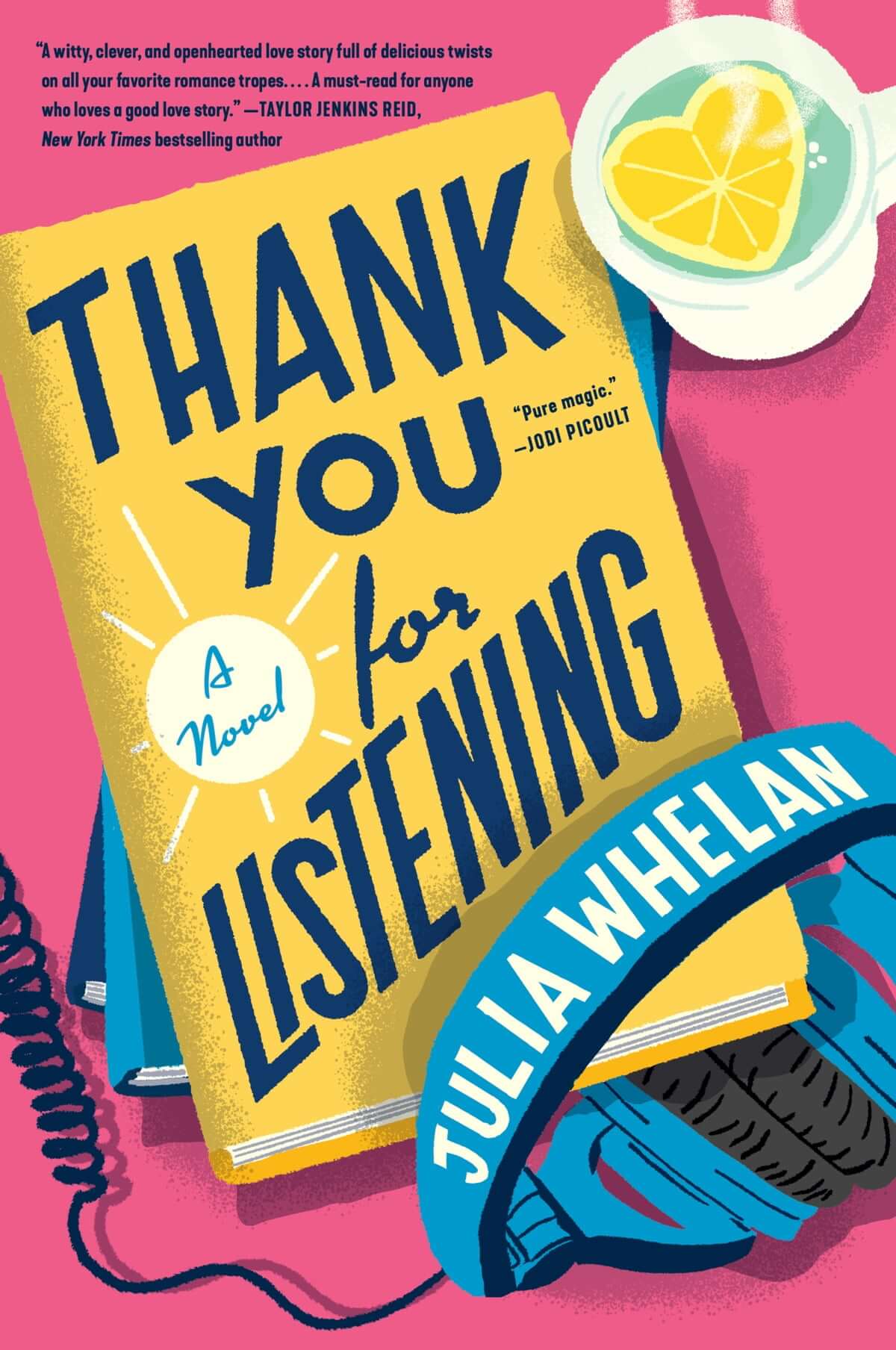
But just to give you perspective, with Thank You For Listening (my second novel), I read every draft of it aloud, I took my time with edits, I was able to work and rework it at my own pace, so it was a much more comfortable experience. And with Casanova LLC, which involved other actors in a multicast performance, I was able to change things on the fly while recording because I could do whatever I wanted with it, I didn’t sell that book, I owned the material. That was a blissful and deeply satisfying experience.
Now that you’ve experienced all parts of the process of a story—writing it, narrating and watching it come to life on screen—what would you say are the fundamental differences between each format? What has been surprising about seeing each one take shape?
Film is, first and foremost, a visual road map for telling a story to an audience. Novels use words as an internal stimulant to prompt the reader into their own imaginative projection of a story. Narration of a book is something else entirely. It’s the most intimate of the three and as a result the most delicate. Which is why the partnership between an author and narrator is so important and why being truly good at it is so much harder than people think.
Because of my background as a child actor, I still think in “Movie.” When an idea comes to me, it comes to me cinematically. The next step is translating it into prose. I enjoy the interiority that novels offer, I like the satisfaction of a well crafted sentence that slips right between the ribs, the space to explore an idea three dimensionally. And when I’m performing a book, mine or anyone else’s, I have the opportunity to inhabit the story, to feel the pacing, test the dialogue, gauge whether the emotional intent is landing.
Another key difference, of course, is the process. Writing novels is a fundamentally isolated endeavor. Granted, there are a number of people who get a book over the finish line, but at its core, a book is one person’s vision. Hollywood is a collaborative art form, the result of many people’s visions. Sometimes too many people’s visions, if I’m being honest. Which I think is why adaptations can get sticky. All too often, authors are actively kept out of the process, infantilized and told that they’re too attached to their precious material to understand that some things must change for a film. When in actuality, every author I know understands that. I mean, if authors understand anything it’s the editing process! What they don’t understand is why people who claim to love their story seem determined to not merely retell it in a different medium, but use it as a Trojan Horse to tell their own version of the story. Too many adaptations fail when the only reason it was made was because the producers just wanted to borrow two things for their own success: the logline and the author’s audience.
The story balances personal fulfillment and professional ambition. What made you want to explore this dynamic, and do you feel like it’s something women are having to confront more and more at this moment in history?
Thank you for noticing this, because this was my topline priority in writing the book. As much as it’s a love story, it’s equally a story about personal growth. Realizing that maybe the dream you had when you were younger doesn’t serve you anymore.
We have this pernicious cultural cliché that you can’t give up on your dreams. But what if you want to opt-out of the dream you had so you can opt-in to a new one? There’s a saying about romantic interests: a crush is just a lack of information. I think that applies to dreams, too.
Personally, I was working through my relationship to Hollywood when I was writing the book. I had been acting since I was nine, I was – all modesty aside – very good at it, I’d sacrificed a lot of what we might call a “normal” childhood to go after this dream, and I loved it. Wouldn’t change a thing. But by my mid to late twenties, I had gathered – to revisit the crush analogy – a lot of information about it. And there was so much about the business that I strongly disliked. The way it uses people and discards them, has little to no regard for talent, and the fact that an artistic pursuit is couched in a gambler’s existence. The potential reward can be life changing, so you keep playing, sometimes long after you probably should have gotten up from the table. I was grappling with that kind of sunk cost fallacy: how can I walk away from this thing I love that I’ve given my whole life to just because I don’t think… I want it anymore?
That’s a very pivotal moment in one’s life. And, yes, I think that dilemma is amplified for women because society has shown us time and again it doesn’t really care what we want. Someone said once: men take what they want while women can’t even ask for what they want. I would argue sometimes we don’t even know what we want because we’ve never considered it (which is the subject of my third book, Casanova LLC). And for an educated, smart, overachieving character like Ella, who has the potential to do something that might help bring about the change she desires so desperately to see in the world… how does she admit to herself that all she actually wants is to be in love with her life, as it is in that moment, for as long as she can keep it? That the goal is really that simple? That’s what I wanted to write about.
What were you most excited to see brought to life in the adaptation? (Setting, a particular scene, a particular character?)
This is going to seem like a dodge, but I promise it’s not: Oxford itself. So many of the comments I’ve received over the years from readers are about how alive the setting is. It’s an overused trope to claim that a location is a character, but in this case it’s true. And I think the magic of the book is that it makes this fairytale land of dreaming spires and ivory towers feel accessible to people, that it’s meant for them, too. At least that’s what people have told me. And I don’t think film has a stronger asset than making people feel like they’re in a place.

What are a few recent books you’ve loved?
Setting aside some of the absolutely incredible books I’ve recently narrated (Great Big Beautiful Life, Home of the American Circus, Atmosphere, Bury Our Bones in the Midnight Soil, The Unmapping, These Summer Storms – see how I managed to sneak them in anyway???), I adored Finding Grace by Loretta Rothschild, Can’t Get Enough by Kennedy Ryan, Strange Folk by Alli Dyer, and a work in progress by Kristin Russell that I probably shouldn’t say too much about, but watch this space.

What’s a book that shaped you as a writer and why?
This is a great question because favorite books are not necessarily the books that help you develop your writing skills. Often, when I love a book too much, it intimidates me and I shrug and go, “Welp, writing is magic.” Which is true to some extent, but writing is also work, and I love it when I can see a writer’s process in the text. Gone Girl taught me a lot about the importance of structure and why a midpoint turn is so effective. And Beach Read came into my life at precisely the right moment; I was trying to figure out how to write a book about audiobook narrators and I kept flirting with satire, because I didn’t know that you could write something so meta and have it be earnestly funny. And then Emily Henry asked me to blurb Beach Read for her (I wasn’t even attached to narrate it yet) and I remember finishing it and just staring at it for a long while, thinking wow, she just paved the lane for me. It gave me permission to write something funny but touching, sexy but serious, a book about book people talking about books, and I didn’t know I could do that until she did it. On the other hand, there are also many books that were informative because something in them didn’t work and figuring out why was just as instructive as the positive examples.
What are you currently listening to? (Podcast, audiobook, music)
The Nobody Should Believe Me podcast, proof-listening to American Queen (the next Audiobrary release), and if it’s Friday night (which it is as I’m writing this), then I’m gearing up to listen to a little Bonnie Raitt as I make dinner. My all time favorite comfort music, that woman’s voice.
What is your go-to beauty item? (Makeup, skincare, fashion)
This is so obnoxious, but I drink a lot of water. I’m very lucky with my skin, genetically, but when I turned 40 I started getting into skincare like everyone else with a TikTok account, and I’m really starting to think… if it ain’t broke, don’t fix it. Lots of water, Ponds at night, sunscreen in the morning. And don’t ask me about fashion; I live in my recording booth and wear nothing but sweatpants and jumpsuits.
What is your summer snack and/or drink?
Well, I live in the desert where it’s 115 degrees today, so water and electrolytes. Though I recently had friends visiting and I ended up throwing leftover watermelon and basil in a blender with some coconut water, ice, simple syrup and vodka. But not just any vodka. Another friend has a book-themed vodka company called Literati Spirits and I had one of her Great Gatsby flavors in my freezer – Blueberry Basil – and boy howdy. That went down be-yooo-ti-fully.
If you could write from anywhere, where would it be?
Weirdly, I do some of my best writing on planes, for some reason. I think it’s being completely unplugged and uninterrupted. But I don’t love any other part of being on a plane, so ideally: I write really well at a place my husband and I love in Italy, this 14th century borgo in the hills outside Cortona. It’s everything you think couldn’t possibly still exist and yet, through much diligence and care, it’s been brought back to life (which feels like a metaphor for the writing process itself). I sit out under a fig tree, looking down the valley to a castle, with a pot of tea or glass of wine and the borgo cat on my lap. I can lose hours that way… before I remember I’m supposed to be writing.
What are you working on next?
Wouldn’t I like to know? I’m currently fire testing about four different ideas, hoping to have picked one in the next month or so and gotten to work. I haven’t written a word in two years, what with trying to get Audiobrary (my own audio publishing company and retail platform) off the ground, but it’s time. For my own sanity, if nothing else. I’ve been so devoted to other people’s books that I’m ready to dig back into one of my own. And coincidentally, I happen to be visiting my magical writing borgo this Fall, so… fingers crossed.
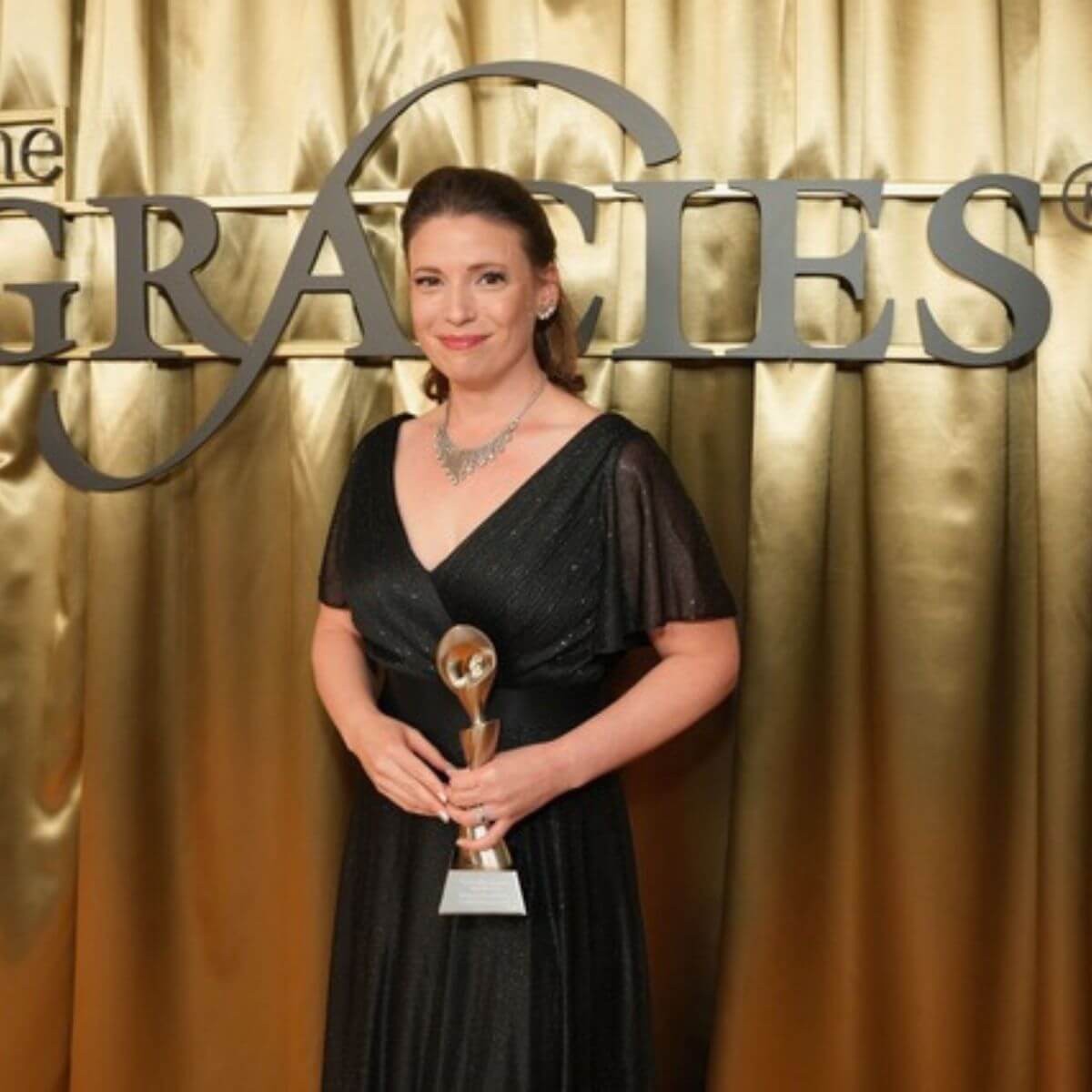
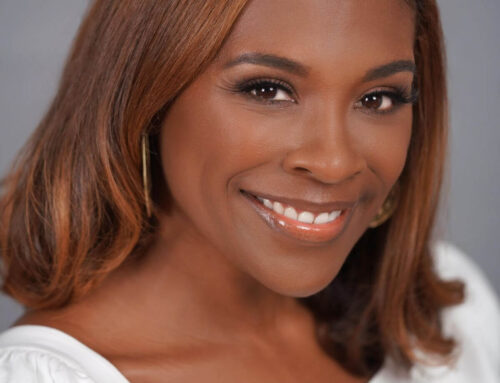
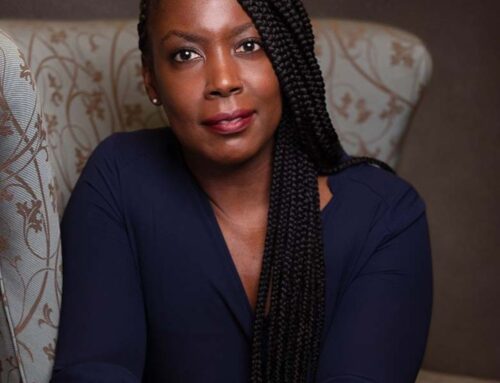
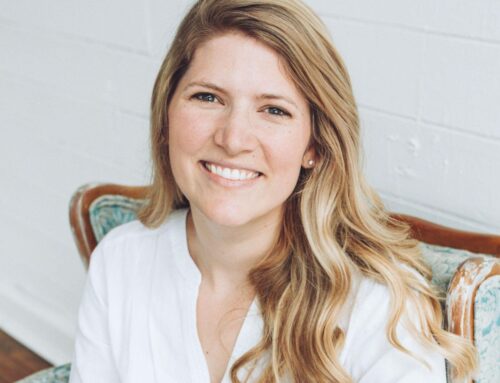
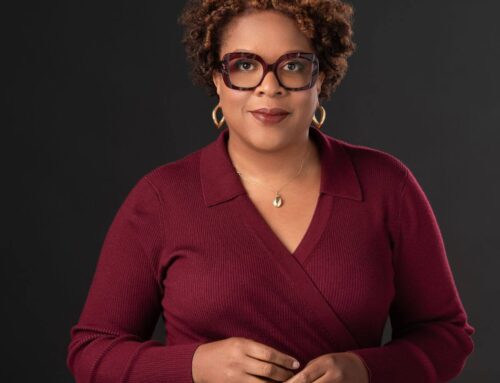
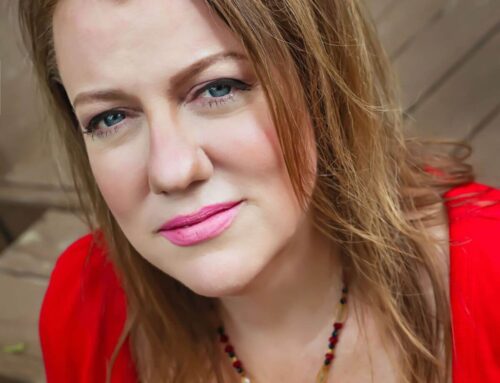
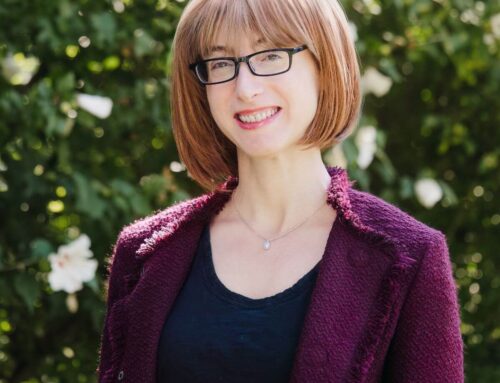
Leave A Comment